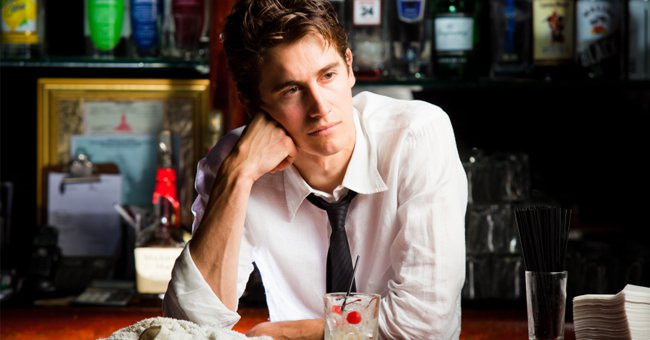To hear bartenders talk about burnout — or, more precisely, protecting oneself against it — is to step into a world of Zen-like mantras: Be true to yourself. Look inward. The person who is stuck must first heal. When the body is clean, the emotions become clean.
When you think about burnout, you often think about office workers stuck in the grind, or artists and writers who feel incapable of producing anything new. But burnout is a phenomenon affecting bartenders too, who work long hours and late nights in an exhausting job that’s not always healthy and can be emotionally demanding.
“I wouldn’t even call it a phenomenon but a rule of thumb,” says Dushan Zaric, renowned mixologist and founder of Employees Only, who has been bartending for more than 20 years. “To be a bartender, you have to have psychological tools that protect you emotionally, intellectually, and spiritually from nightly challenges behind the bar. We have a problem in our industry, and unless we start teaching people about these psychological tools we’re going to have a much bigger rate of burnout than we already do.”
Zaric says that part of the problem is that these days people enter into the professional craft much earlier than they should be. When people with two years of experience begin leading bar programs, he says, they don’t have the ability to make the decisions that will best benefit the team and the business. Moreover, they haven’t had the training or the experience that comes with time to adequately manage the stress, exhaustion, frustration, or personal problems that can all affect their efforts behind the bar.
They push themselves too hard and become bitter and jaded about the job. What’s more, they become frustrated with guests or bring personal emotional baggage to the bar without knowing how to cope with it. Training new bartenders correctly, Zaric says, is key.
“You can learn how to make drinks from books, but you cannot learn to bartend from books,” he says. “You need a teacher.”
For Gary Crunkleton, owner of The Crunkleton and a 20-plus-year bartender, managing burnout involves managing your own emotions and understanding your own desires and career goals.
“I would speculate that it is not the profession that is the culprit, but the individual not getting what he or she wants from the profession,” he says, adding that his own experiences with burnout have been emotionally driven.
A job in service industry isn’t always pretty when guests are rude or condescending, a common phenomenon for bartenders, whose job relies on hospitality.
“Emotional labor is difficult on many levels,” Crunkleton says. “It took me years to understand this. Unfortunately, it took even more years not to let it bother me.”
So what can a burned out bartender do? While reasons for why burnout happens vary, bartenders’ solutions all fall along the same lines. Namely: take care of yourself, take a break, and take some time to reevaluate.
“I know this sounds rhetorical and corny, but it is imperative to be true to yourself,” Crunkleton says. “My advice to any bartender feeling stuck in this profession is to look inward. An introspective view of one’s own personal values is all that matters when looking for happiness. The happiness will remedy feeling stuck.”
Franky Marshall, a career bartender who got her start at Clover Club and the Monkey Bar, suggests remedies as simple as taking breaks during shifts, maintaining outside interests, and caring for yourself.
“If bartending, eating poorly, and sleeping little are the only things you’re doing every day, you’re definitely more likely to feel the effects of the job and perhaps come to resent it,” she says. “We’ve all experienced those bartenders who seem to hate what they’re doing, right?”
Channeling your energies into something other than bartending is a great way to get out of a rut, suggests Jill Allison Bryan, a creativity coach and founder of Creative Oasis Coaching. Bryan works with clients in a variety of creative fields, and she says burnout happens when we become “slaves to our routines day in and day out without ever taking the time to shake things up.”
Bryan suggests visiting museums, going on trips, or trying a new cuisine to step away from the “stuck” part of your life and expose yourself to fresh creative experiences. She also recommends giving yourself permission to make something awful as well as going back to square one.
“Ask yourself, ‘How can I tap back into the experiences that originally drew me to my craft in interesting ways?’” she says. “Going back to what’s worked well in the past and giving it a new twist can be a great way to liven up our current endeavors.”
Zaric advocates taking a vacation, getting out of the bar, and treating burnout like a physical injury that must be healed before anything else. When Zaric experienced burnout early on in his career, he spent a month as a less-than-successful car salesman before realizing that bartending was truly his passion. By looking inward, he was then able to develop coping mechanisms to deal with the emotional toll bartending takes.
“I took that month to really heal myself and distance myself from bartending to see what works,” he says. “When the body is clean, the thoughts and emotions become a lot cleaner to understand and comprehend.”
Marshall has dealt with her own burnout by becoming aware of what she needs — and learning to recognize when she’s starting to feel physically and emotionally drained.
Crunkleton, too, has made some adjustments in his career, allowing himself to bring his own emotions to the bar and to the guests he’s serving.
“For me, sharing my feelings behind the bar — which could be considered unprofessional — has enabled me to become a more authentic bartender,” he says. “My personal experiences of heartbreak, loss, arguments, etc. are not things that are unique or exclusive to me. Sharing these experiences in conversations at the bar provides an ultimate example of hospitality and grace.”
If there’s one thing that gets repeated over and over, it’s that understanding your own needs is essential to keeping burnout at bay and leading a happy and successful professional life.





